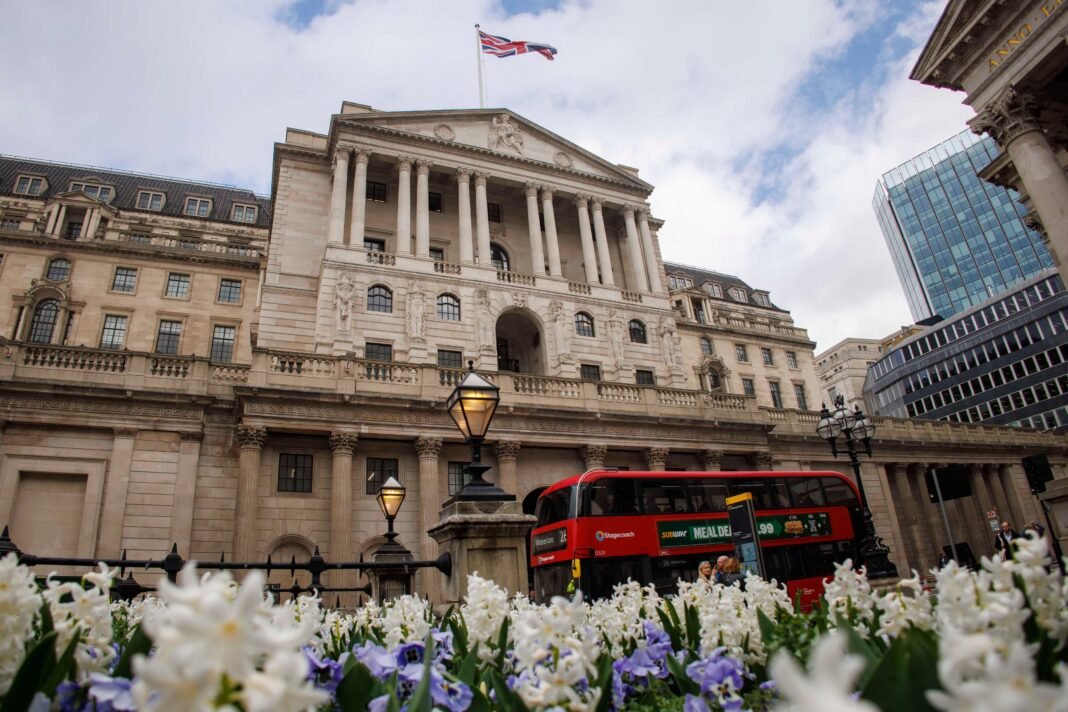The Bank of England has issued a stark warning that Donald Trump’s ongoing trade war could push the global economy closer to a financial and economic crisis, citing an escalation in global tariffs that began on Wednesday. The central bank’s Financial Policy Committee (FPC) noted that the trade tensions have contributed significantly to growing risks to global economic growth.
The committee warned that the tit-for-tat nature of these tariffs posed a serious threat to financial stability, with uncertainty in global markets intensifying. It emphasized that the probability of adverse events had risen, increasing the likelihood of severe economic consequences.
“The global risk environment has worsened, and uncertainty is now more pronounced,” the FPC stated. “The probability of sharp market corrections is high, and their potential impact could be severe.”
A key concern highlighted by the FPC was that the escalating market turmoil could drive countries into a debt spiral. As governments struggle with rising borrowing costs and low growth, they could face serious challenges refinancing their debt, leaving them with less capacity to respond to future shocks. The committee warned that these risks could materialize rapidly, particularly if accompanied by large capital outflows.
The trade war, instigated by US tariffs, includes sweeping measures like a 104% tariff on Chinese goods and tariffs as high as 50% on some of the US’s largest trading partners. The FPC raised alarms that these measures could have profound effects on the global economy, stifling growth and affecting global trade patterns.
A shift in global trading dynamics, the Bank warned, could harm financial stability by suppressing economic growth. It also highlighted that inflationary pressures could rise, given the anticipated price increases from tariffs. Many economists predict that the trade barriers could reduce the ability of the US Federal Reserve to manage a potential economic downturn by cutting interest rates.
The UK, with its open economy and significant financial sector, is particularly exposed to these global financial risks. Chancellor of the Exchequer, Rachel Reeves, confirmed that she has been in close contact with Bank of England Governor Andrew Bailey regarding developments in financial markets and the broader economy.
The Bank reiterated concerns about the high debt levels that many countries face, which make them especially vulnerable to economic shocks. Increased government bond yields would further elevate the cost of borrowing for both governments and private entities, the Bank cautioned.
While there has been significant market turbulence, the FPC noted that market movements had been “orderly,” and the UK banking sector remains robust with sufficient capital buffers to absorb major shocks. Household debt levels, it added, are currently at their lowest since the early 2000s.
However, hedge funds have been hit hard by the market upheaval, with some forced to sell assets after trillions of dollars were wiped off the value of global stock markets. Many have been faced with large cash calls and had to secure additional funding to meet their obligations.
Despite these challenges, the FPC observed that market functioning had remained intact. Some hedge funds, anticipating the market downturn, had already reduced their risk exposure ahead of the US tariff announcements. While these funds faced significant margin calls, they were able to meet them without exacerbating the volatility.
The committee also expressed concerns about highly leveraged companies, particularly those reliant on private equity funding. If investor risk appetite continues to decline, or if interest rates stay higher for longer than expected, these companies could face significant refinancing difficulties.
“Private equity firms and their portfolio companies might be particularly vulnerable to such challenges due to their higher levels of debt,” the FPC warned.
The Bank of England’s latest report underscores the growing financial instability linked to the global trade conflict and highlights the pressing need for caution as the economic outlook becomes increasingly uncertain.
For more updates on this news, follow London Pulse News.


